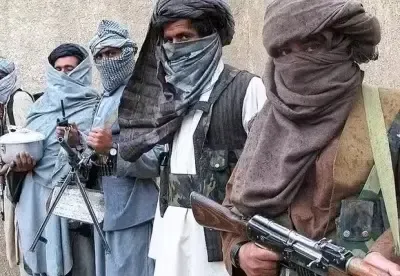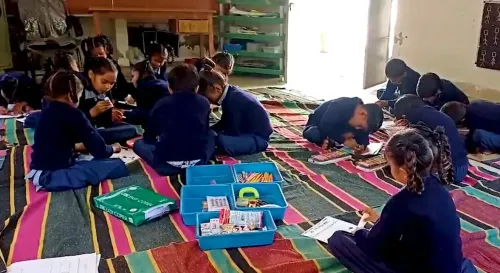Is Pakistan's Urgent Need for Chinese Funds Leading to a Clash with the Afghan Taliban?

Synopsis
Key Takeaways
- Pakistan's economy is in crisis, leading to a desperate search for Chinese investments.
- The TTP remains a significant threat that Pakistan struggles to control.
- China's investment hinges on Pakistan's ability to secure projects effectively.
- Recent military strikes by Pakistan could escalate tensions with the Taliban.
- Regional stability is at risk due to the ongoing conflict and security challenges.
New Delhi, Sep 16 (NationPress) Pakistan may have celebrated China's insistence on including Afghanistan in the China-Pakistan Economic Corridor Project (CPEC) 2.0, yet during his latest trip to China, Prime Minister Shehbaz Sharif returned without any commitments as Beijing stated that investments would depend on the project's security.
The Chinese have struggled with the Balochistan Liberation Army (BLA) and the Tehreek-Taliban Pakistan (TTP) while trying to implement the CPEC project in Balochistan. They have voiced ongoing concerns regarding Pakistan's inability to secure the safety of its workers on the project. Moreover, both groups have inflicted significant damage during the project's implementation.
While China is undoubtedly interested in CPEC 2.0, which involves Afghanistan, it has opted for a cautious approach this time and will not invest unless Pakistan can assure the project's security.
For Pakistan, controlling the TTP is essential since it has the backing of the Afghan Taliban. Pakistan has continually accused the Taliban of supporting the TTP and permitting it to use Afghan territory to attack Pakistan.
Currently, intelligence reports indicate that Pakistan is becoming increasingly desperate and has resolved to take decisive action, sending a clear message to the Taliban.
Pakistan has now authorized strikes on TTP bases within Afghan territory, which poses a risk of full-scale conflict with the Taliban. Following a high-level security meeting chaired by Army Chief Field Marshal Asim Munir and other officials, Pakistan has identified TTP infrastructure across the Durand Line and it was agreed that military strikes would occur, signaling a potential major escalation.
An official from Pakistan is expected to visit Afghanistan to inform the Taliban of their plans regarding the TTP.
Recently, the Foreign Ministers of China, Pakistan, and Afghanistan convened to discuss the CPEC 2.0 initiative. China emphasized its desire for Afghanistan to participate in the project. While various issues were addressed during the meeting, no consensus was reached regarding the Taliban's support for the TTP. Although Afghanistan assured China that it would not permit the BLA to launch attacks from its territory, it failed to provide similar guarantees concerning the TTP.
The outcome of the Pakistani official's visit to Afghanistan will be crucial. Should the Taliban reject Pakistan's proposals, chaos in the region could ensue. Pakistan desperately needs Chinese investment as its economy continues to decline, but it must first convince Beijing that it can secure the project.
Despite extensive efforts, the Pakistan Army has struggled to contain the TTP. Following the Foreign Ministers' meeting, TTP attacks against the Pakistan Army have intensified, resulting in the loss of 50 personnel in the past week in Khyber Pakhtunkhwa and Lower Dir. Unable to combat the group effectively, the Pakistan Army has even sought assistance from the US for intelligence and logistical support.
Sharif has recently attributed terrorist attacks in Pakistan to groups based in Afghanistan, warning that Pakistan would no longer remain passive. The Pakistan Army may take offensive measures, but overcoming the TTP will not be easy.
Indian officials believe that without US or Chinese support, Pakistan is unlikely to achieve significant success against the TTP or BLA. However, its urgent need for financial resources makes it willing to risk entering an all-out conflict with the TTP, which jeopardizes regional stability and could lead to a major escalation.










